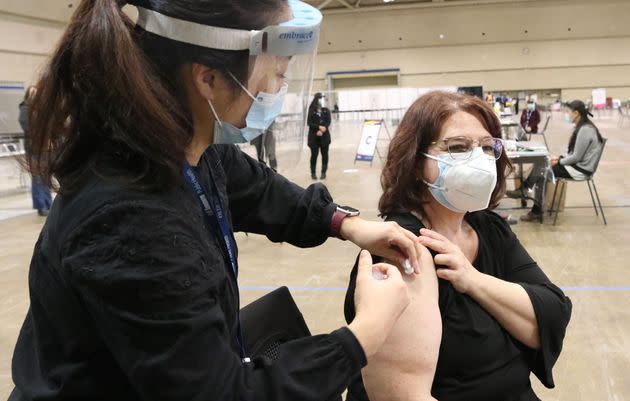It's OK To Have Questions About COVID-19 Vaccines. Here Are Doctors' Answers

TORONTO — It’s totally normal to have questions about any aspect of your health care. But when it comes to the COVID-19 vaccine, scientists and doctors don’t want the public to turn to random Facebook, Instagram and YouTube accounts for answers. So they’re stepping in.
Krishana Sankar is a doctoral researcher at the University of Toronto’s Faculty of Medicine. She and Tara Moriarty, who directs an infectious diseases research laboratory at the university, have been holding nightly Zoom calls for health-care workers and family members of long-term care residents who have questions about the COVID-19 vaccines.
“It’s OK to have questions, but go to the right places to get your answers,” Sankar told HuffPost Canada. “And then think about it before you share the information.”
It’s OK to have questions, but go to the right places to get your answers.Krishana Sankar
Their calls have drawn between 30 and 50 participants every night since Jan. 4. One person brought up a false conspiracy theory about the vaccines having microchips in them, but in general, most people just need more information or want to know how to talk to their family members who are nervous about the vaccine, Sankar said.
She shared some of the common questions she’s heard and their answers. Here they are, along with other common questions and answers provided by a panel of doctors with the Ontario Medical Association (OMA).
Which vaccine should you get?
“People should get whichever of the two are offered and available to them,” Sankar said. “Both Pfzer and Moderna vaccines are safe and effective. There are minimal differences between the two and they work in a similar fashion with 95 per cent and 94 per cent efficacy respectively.”
When can you get vaccinated?
This handy calculator can give you an estimate of when you might be eligible for vaccination based on your age, job and a few other factors.
Each province and territory has its own plan for distributing vaccines. In...

 Yahoo Finance
Yahoo Finance 
